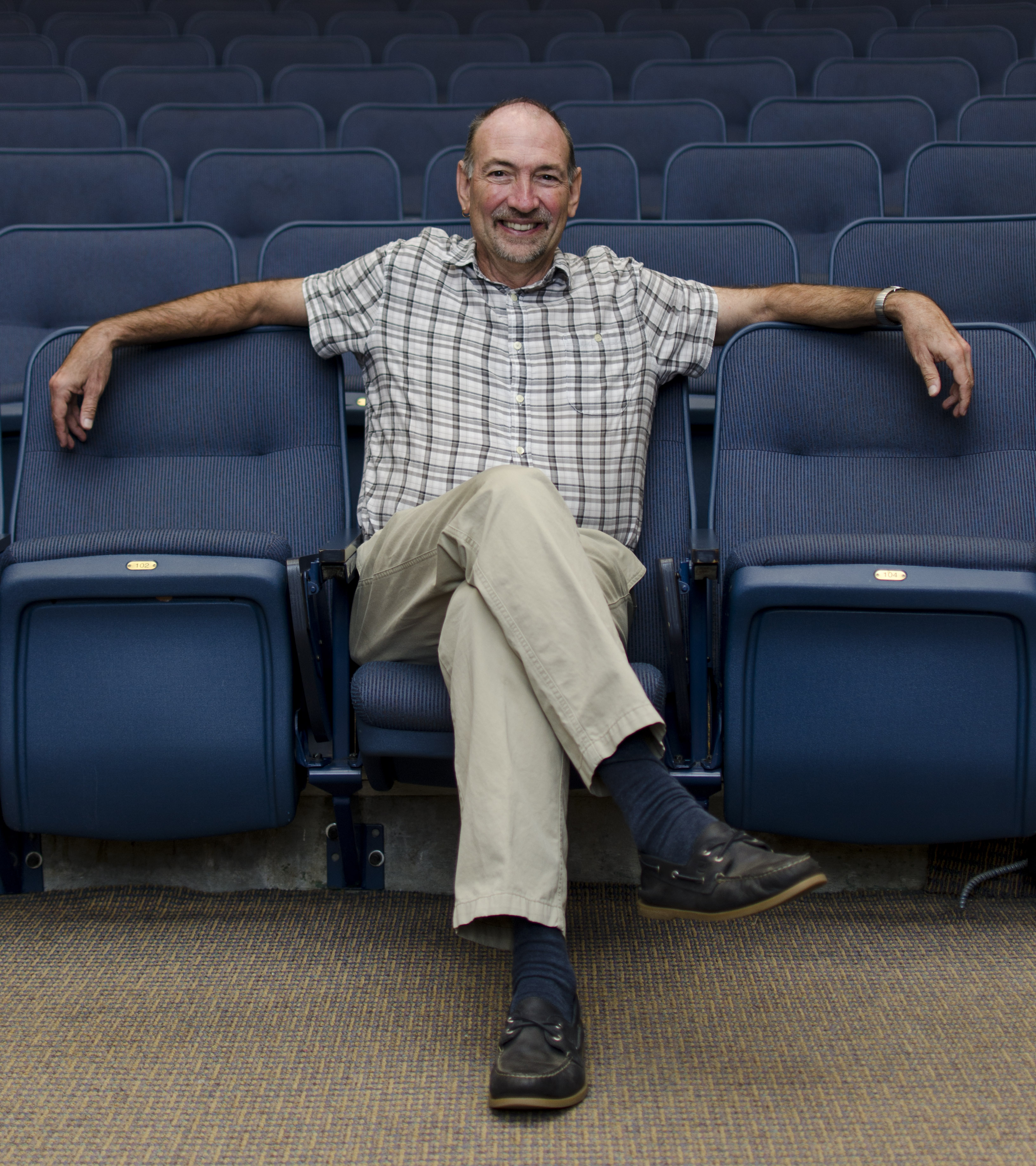General education reformer, director of cluster program to retire

Gregory Kendrick, chair of the freshman cluster program, will be retiring at the end of this year. (Anthony Tran/Daily Bruin)
By Laurel Scott
June 5, 2016 2:07 p.m.
One of Scott Hugo’s favorite memories at UCLA was taking a cluster course with Gregory Kendrick, during which he wrote a final paper on Anakin Skywalker from the “Star Wars” films.
“I’ll never forget when I handed it in, he had a little smile on his face when he referred to it as my magnum opus,” said Hugo, who graduated in 2009. “I’m incredibly grateful I had the chance to work with a professor like him so early in my academic career.”
Kendrick, who has overseen the freshman cluster program since it began in 1998, will be retiring at the end of this year.
In addition to his work with the cluster program, Kendrick has taught the cluster “Neverending Stories: Multidisciplinary Perspectives on Myth” since 2009.
Freshman clusters are year-long courses focused around a central theme taught by a team of faculty and graduate students. During spring quarter, students enroll in smaller seminars related to the cluster’s theme.
“I’m really proud of the work I’ve been a part of in terms of reforming the general education curriculum at UCLA,” Kendrick said.
Kendrick said he began his career at UCLA in 1997, when Judi Smith, the dean and vice provost for undergraduate education, offered him a position to help reform UCLA’s general education requirements through the freshman cluster program.
When he took the job, the GE curriculum consisted of a variety of courses that were unrelated to each other and lacked difficulty for students, Kendrick said.
At the University of Kentucky, Kendrick had been a student activist who worked to abolish general education requirements, said Lucy Blackmar, assistant vice provost of the Undergraduate Student Initiated Education program.
“Now he’s become what I call UCLA’s general education guru,” Blackmar said.
Blackmar described Kendrick as the perfect person to develop the cluster program because he was both interested in teaching and organized enough to be an administrator.
Kendrick said he grew up in Kentucky, where his family had lived for almost 200 years. He was the first member of his family to attend college.
His mother’s side of the family was staunchly German-American and his father was a World War II veteran who fought in the Battle of the Bulge and helped liberate the Dachau concentration camp, Kendrick said.
He added his two sides of the family painted very different pictures of what it meant to have German heritage.
“From an early age, I felt myself torn,” Kendrick said. “A lot of what I found myself doing later with modern history was trying to find an answer to that question (about my heritage), which was, of course, a little bit of both.”
Ten years after attending the University of Kentucky, Kendrick became a graduate student in history at San Francisco Sate University, he added.
“I was initially drawn to history as an escape, and then … as a career because I saw it was the kind of subject that could really change the world,” Kendrick said.
Kendrick was hired as the cluster instructional coordinator and soon became the director of the program, Smith said. She added he was instrumental in reforming UCLA’s general education curriculum.
“He was always among the committees … making sure the plans being voted on were implemented,” Smith said. “He was dedicated to making certain that students had a really fantastic academic experience.”
In 2009, Kendrick began to teach full time, becoming one of the lecturers for the newly formed Cluster 30.
Titled “Neverending Stories: Multidisciplinary Perspectives on Myth,” the course focuses on the study of myth and storytelling from ancient times to contemporary culture.
Kendrick said his experiences teaching the class were the inspiration for two books he wrote about archetypes of heroism and villainy in Western history and culture.
Joseph Nagy, an English professor who also teaches Cluster 30, said Kendrick’s spring seminar in the cluster course is always the first one to fill up.
“The students love him, and they look upon him as a source of wisdom but also someone they can understand and see things from the perspective of,” Nagy said. “It’s hard to imagine (the class) without him.”
On the last day of the myth cluster lecture during winter quarter, Kendrick said his students gave him a tongue-in-cheek goodbye. The class played the song “Memory” from the musical “Cats,” knowing he disliked musicals.
“I was very touched,” Kendrick said. “All the students pulled out their iPhones and waved them back and forth like candles.”
After his retirement, Kendrick said he plans to stay busy by traveling, playing chess, studying wine and auditing some astronomy classes at UCLA.
He added he plans to write fiction and tell the story of Norse mythology from the point of view of Loki, the god of mischief.
“He has a bone to pick with the gods, and I intend to share it with anyone who will read it,” Kendrick said.


